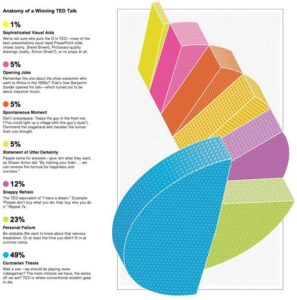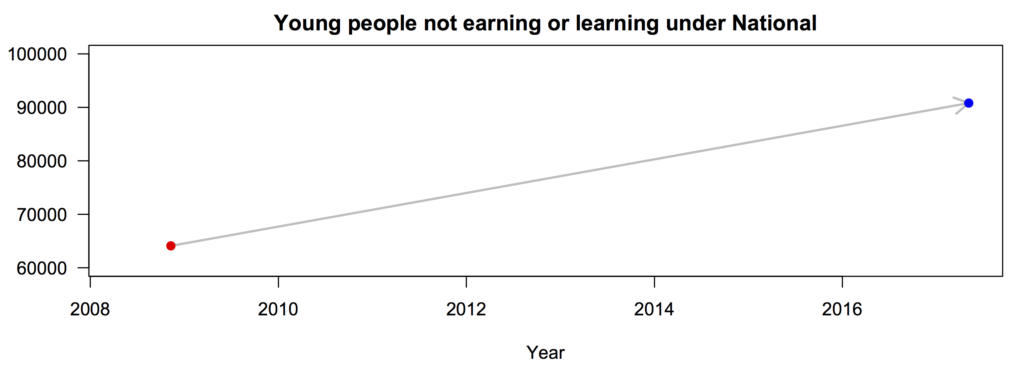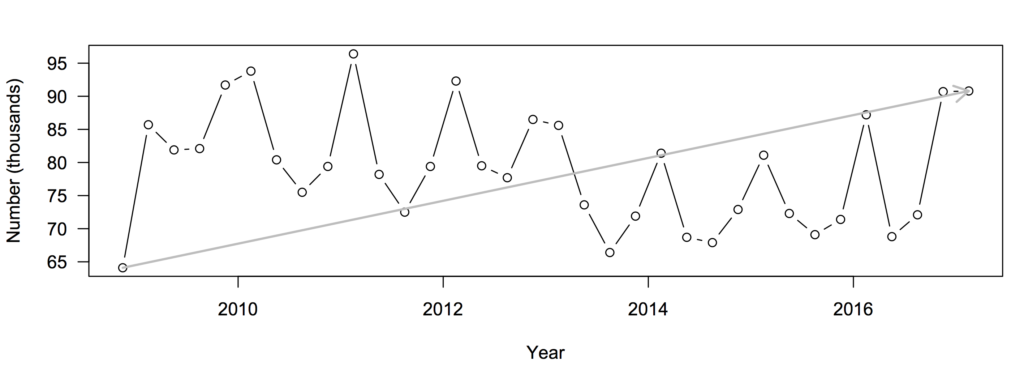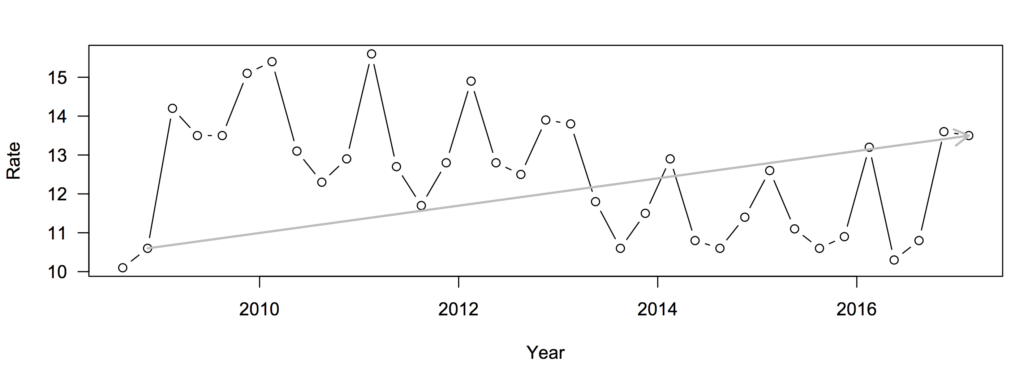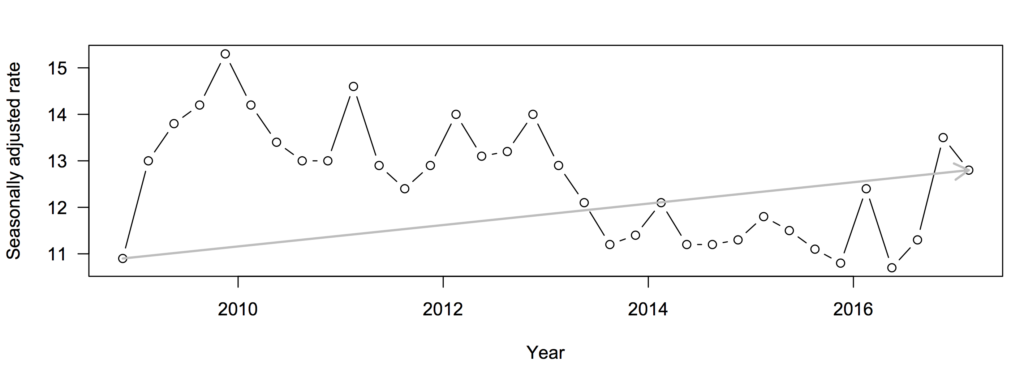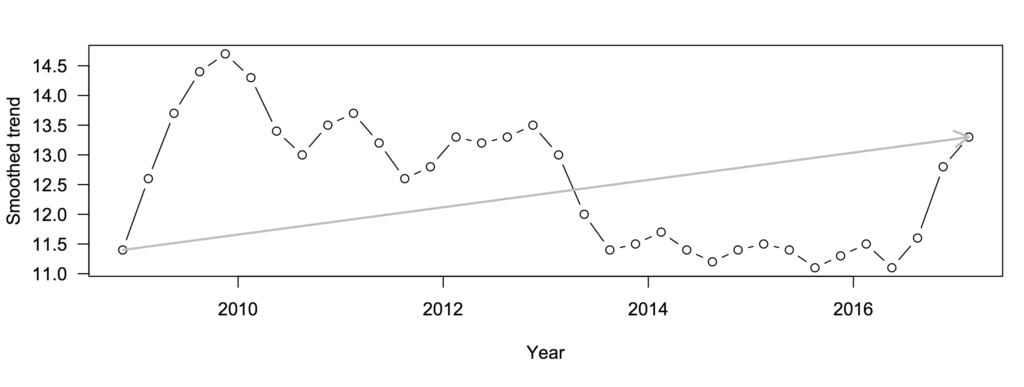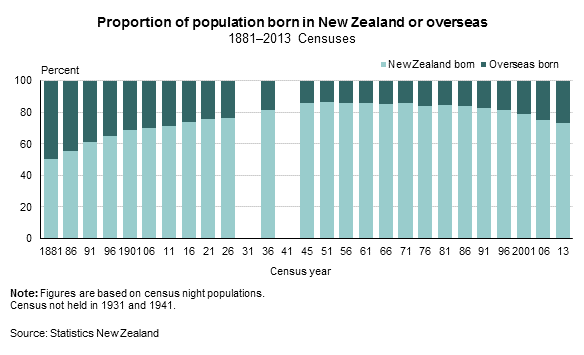Briefly
- “What CPE—and the field—needs now are analysts. Lots and lots of analysts. And we, at least, are hiring DataNerds who want to be JusticeNerds™. With departments now coming in by the state-load, we are inundated with confidential data that needs to be interrogated so that we can answer some of the most fundamental questions in policing” from Phil Goff (no, not that one) at the Center for Policing Equity, via mathbabe.org
- If someone claims your female developers are promoted less because they’re treated worse at code review, and you say “no, they’re treated worse because they’re more junior”, you’ve made the basic causal-inference error of conditioning on an
intermediateconsequence of your input variable. Felix Salmon on Facebook’s example
- “For too long social welfare has muddled along with bipartisan policies like shouting at the jobless or not helping people with mental health issues, without really checking if those methods work.” This, from, Lyndon Hood, isn’t going where you might expect. It’s unfair, but not completely unfair.
- Another reason ‘breakthrough’ science stories may be misleading: there was a research paper claiming fish preferentially eat microplastic pollution and are serious harmed by it. It has been retracted. There are allegations of deliberate fraud; the data were certainly not made available as the journal’s policy demanded. If you remember a story on this, go back and see if the same media outlet covers the retraction.
- I’ve written a few times about the bogus claim that the typical Kiwi pays no “net tax”. In the other direction, there were stories about “Tax Freedom Day” this week, on the basis of 34.8% of income going in tax. Yeah, nah.
- Derek Lowe writes about a new analysis looking at solanezumab, Eli Lilly’s failed treatment for Alzheimer’s. The analysis claims that if the drug had been approved based on the early, weak signals of benefit, the cost to the US government would have been about ten billion dollars over the past four years. That would pay for a lot of trials, or for a lot of other improvements to dementia care.
- There’s publication bias in research on stock-market patterns. Because of course there is.
- Somewhat depressingly, someone has looked what people write when they apply for loans at peer-to-peer lending site Prosper (like Harmoney here in NZ). The phrases most indicative of the loan defaulting: “God, promise, will pay, thank you, hospital.” (via Matt Levine, who isn’t surprised)
This was almost too good to check
Know there’s a lot of news out there about France right now, but I just found out a pie graph is called a Camembert.
— Lauren Collins (@laurenzcollins) May 8, 2017
And this was too good to ask if it’s a joke:
(it is)
